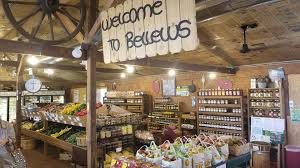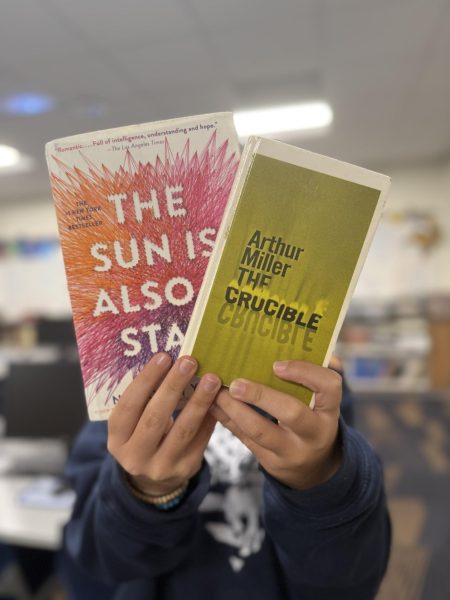The Beauty of Ugly Produce
America struggles with food waste within grocery stores and consumers

Photo Courtesy of Bellews Market- Facebook
Spartanburg’s own Bellews Market is an example a produce store that is not wasteful. They buy local, in season produce and even have a section for ugly produce which they sell at a discounted price to avoid throwing away the imperfect fruits and vegetables.
When buying produce, one tends to pick out the prettiest item in front of them, whether it be perfectly round apples or perfectly colored eggs, nobody wants to spend their money on “ugly” produce. Our habit of bypassing the imperfect fruits and vegetables even though they are still edible and fresh directly causes about 20% of the produce grown in the U.S. to be rejected from grocery stores and wasted. Grocery stores can’t afford to buy “ugly” produce that their consumers won’t buy. The food waste issue is not only grocery store’s fault, the average American throws away nearly 1 pound of food a day and it has been estimated that 40% of the food produced in the United States is wasted each year. Not only is this impractical and not eco-friendly, but it also costs businesses, farms and households about $218 billion each year.
A large amount of the food wasted is due to confusion of date labels and their meanings to grocery employees and buyers. Many people are misinformed that date labels represent expiration or product health, when in reality most date labels are based on an estimation of peak freshness. If consumers learned to rely on smell to determine whether food has expired like humans have throughout history before the introduction of date labels, much less perfectly good food would be tossed, saving Americans money and preventing food waste.
Once American households learn what to throw away and when, composting could be an alternative to throwing food away in the trash can.
Sean Abbott (12) enjoys farming and gardening on his grandparents’ land and sees the many benefits of composting on an agricultural scale.
“My grandmother is constantly making things in the kitchen, which means there is a constant supply of waste. We feed much of this waste to the chickens and compost it as well. I believe that grocery stores could implement this on the large scale,” said Abbott. “If there were programs where local farmers could pick up these scraps, they could turn them into chicken feed, pig feed, and compost. Businesses and nonprofits could start to distribute these scraps to the farmers or process them into compost.”
According to the food waste “report cards” issued by the Center of Biological Diversity, the American grocery store with the highest grade is Walmart with a B, and some of the grocery stores with the lowest grades are Whole Foods, Publix, Costco, Trader Joe’s, Target and Aldi. These grocery stores fail to take simple actions such as waste prevention, recycling, donating extra produce and taking accountability for their wastefulness. With an estimated 41 million people in the United States facing hunger according to feedingamerica.org, grocery stores could easily donate some of their extra “ugly” produce to soup kitchens and organizations designed to distribute extra food. Most grocery stores don’t donate food because they aren’t sure how to do it in a safe way where they won’t be faced with a lawsuit. But, the Bill Emerson Good Samaritan Food Donation Act protects companies from liability if they are making good-faith food donations.
Many organizations have been built to redistribute extra produce including Spartanburg’s own organization Ruth’s Gleanings. Ruth’s Gleanings collects imperfect produce that otherwise would have been thrown out from a variety of locations like farms and catering companies and redirects them to shelters to feed the less privileged. According to goupstate.com, founder Tonja Smith got this idea at a luncheon after receiving a text from a friend about a family that was struggling and needed food. At the luncheon she noticed all of the food left that the catering company would throw away.
“I was looking at that buffet, jam-packed with amazing food that was about to be thrown out,” Smith said in an interview with goupstate.com. “And there is a family less than a mile away, and they need food.”
Imperfect, a larger food waste organization takes a different approach. Imperfect buys flawed fruits and vegetables from farmers rejected by grocery stores and then sells them at a 30 to 50% discount. They do this to “show the world the true beauty of ugly produce,” making it cheaper and more practical to buy imperfect produce. According to triplepundit.com, CEO Ben Simon finds it important for grocery stores to make changes in their wasteful ways.
“For the average American consumer, grocery stores are the only connection to where food comes from,” said Simon. “Grocery store chains have a big opportunity with the new ugly produce trend to do well and do good at the same time.”







